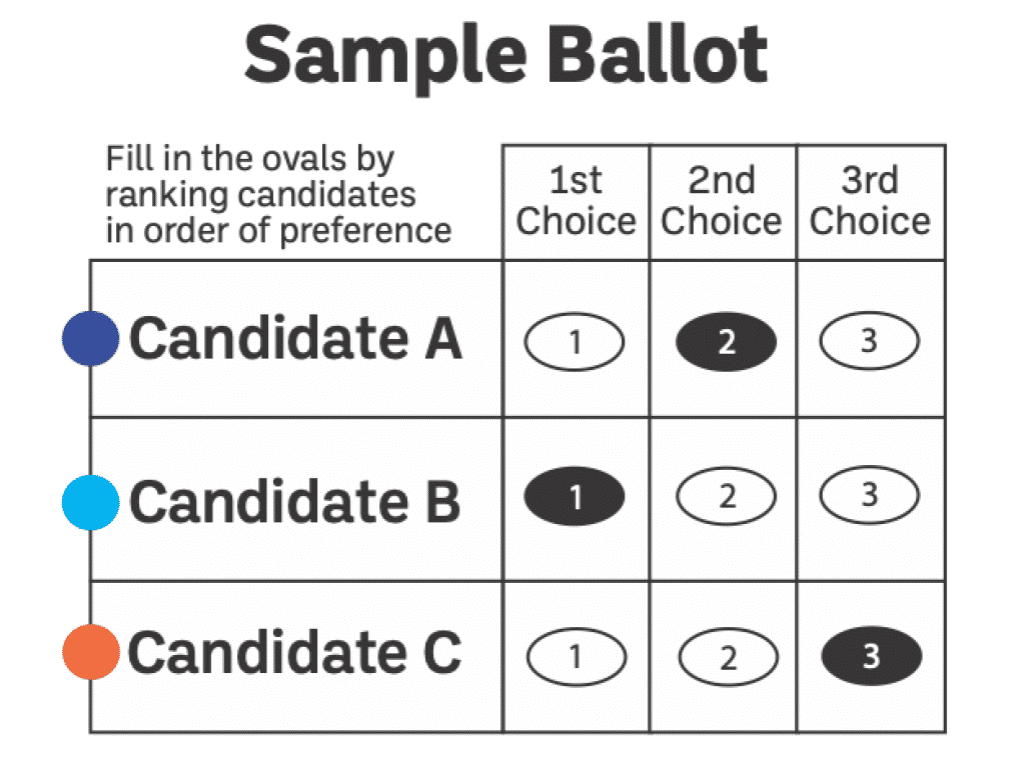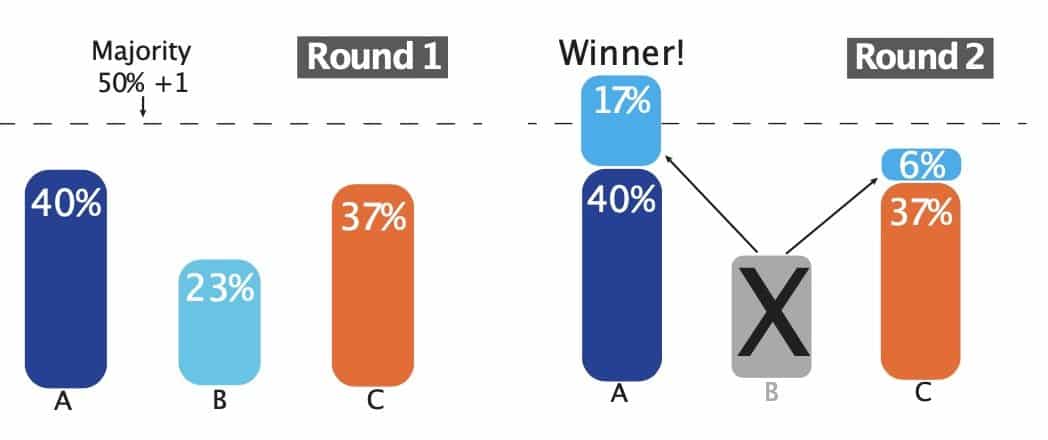How Ranked Choice Voting Works
RCV is a simple yet powerful change to the way we vote.
In ranked choice elections, voters rank as many or as few candidates as they like from their favorite to least favorite: first choice, second choice, and so on.
In a single-seat election, if a candidate receives a majority (50% + 1) of first-choice rankings in the first round, that candidate wins. However, if no candidate receives majority support then an “instant runoff” second round takes place. In that instant runoff, the candidate with the fewest first-choice votes is defeated, and these ballots now count for those voters’ second choices. This process continues until one candidate reaches a majority and wins.
Multi-seat ranked choice elections function similarly, and by not wasting any vote they yield proportional representation: taken as a whole the group of winners accurately represents the voters’ will. The video below provides an excellent visual representation of the process.
RCV is the most cost-effective and efficient way to ensure winners have broad voter support and eliminate spoiler and strategic voting dynamics.
Sometimes called “instant runoff voting,” RCV is a simple, cost-effective, common sense reform that:
- Gives voters more choice and more power
- Requires candidates to build broad majority coalitions
- Encourages positive campaigning and civility
- Solves the spoiler problem
- Promotes more inclusive, diverse and representative elections
- Reduces polarization and breaks through gridlock


